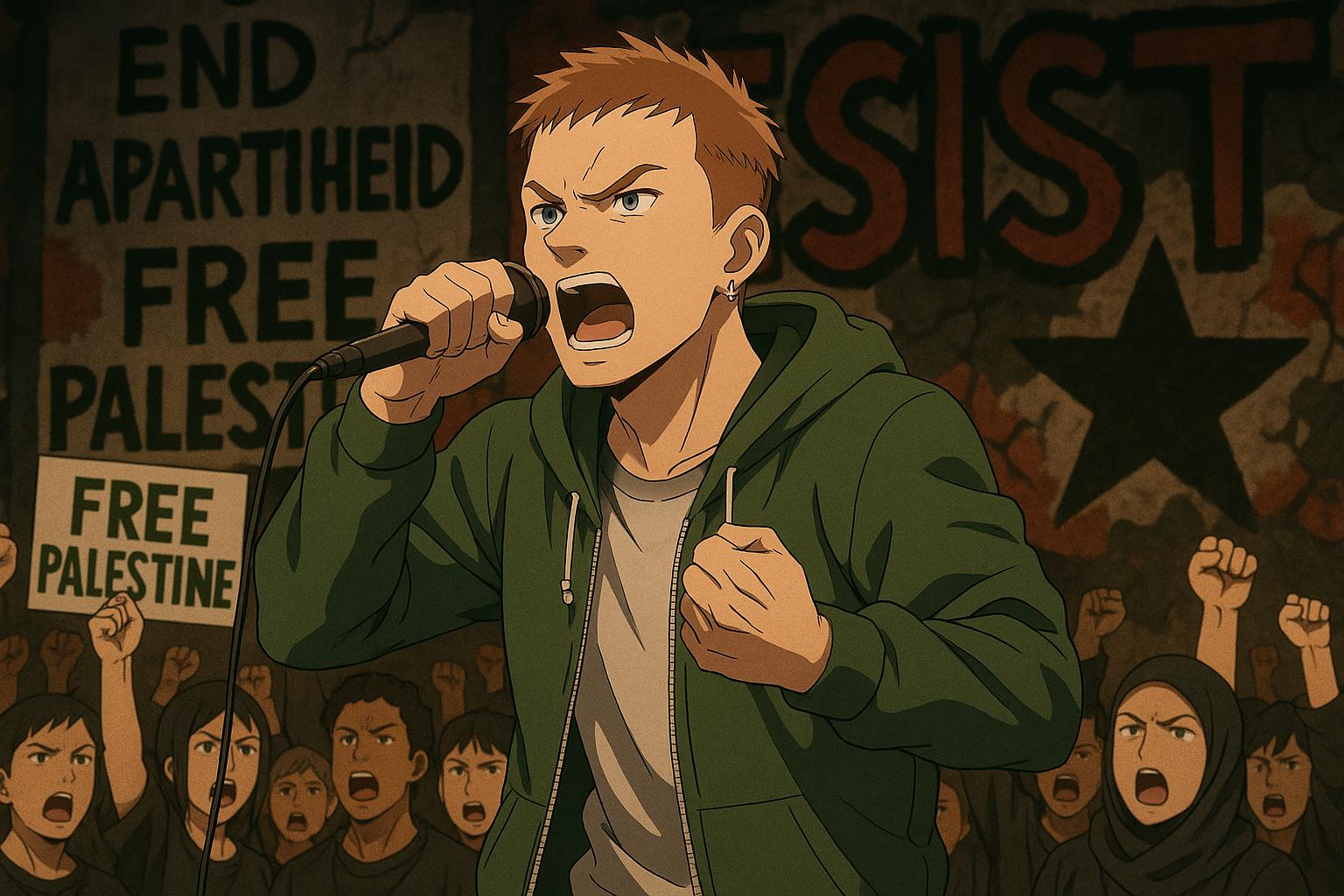Controversial Northern Irish rap group Kneecap continues to stir public outrage as they brazenly mock both the police and the Conservative Party, notably targeting the legacy of Margaret Thatcher. Their most recent performance at The 100 Club in London, held after one member was charged with a terror offence, showcased their provocative style. With a sold-out crowd chanting “Free Palestine” and singing a grotesque rendition of “Maggie’s in a box,” the event has drawn further scrutiny to the band’s tumultuous relationship with law enforcement and the British establishment.
Kneecap, composed of Mo Chara, DJ Provai, and Moglai Bap, has long blended their music with political commentary, merging satirical lyrics with Irish republican themes. Mo Chara, who faces charges under the Terrorism Act for allegedly displaying a Hezbollah flag, asserted to the crowd that police presence at the event was a demonstration of a system aiming to marginalise voices from Northern Ireland. “You should all be thanking me for overtime,” he audaciously remarked, challenging the authority while defiantly positioning the band as defenders of a historical struggle.
The backdrop to this incident is significant. Kneecap has been the focal point of a broader parliamentary and public debate around free speech and the bounds of artistic expression. Their past performances have sparked investigations by British counterterrorism police, with allegations of endorsing violent rhetoric. Notably, comments made by a band member at a previous gig, including “The only good Tory is a dead Tory” and calls to “kill your local MP,” have echoing implications amid heightened sensitivities surrounding political violence in the UK, particularly following the tragic killings of MPs Jo Cox and David Amess. The group’s defenders argue that their confrontational style is a legitimate form of protest akin to the works of punk predecessors.
Kneecap's antics have not been limited to the UK. Their controversial performance at Coachella earlier this year attracted international attention, where they projected equally provocative statements about the Israeli-Palestinian conflict, including bold assertions that Israel is committing genocide against the Palestinian people. Critics condemned these comments as promoting antisemitism and inciting hate, further fuelling calls for the cancellation of their upcoming appearances, including at the prestigious Glastonbury Festival. In an age where mediums such as music festivals often become platforms for activism, Kneecap's approach raises complex questions about the intersections of art, political expression, and societal responsibility.
Despite the backlash, Kneecap remains unapologetic. They have claimed that their comments and imagery have been misrepresented, framing the backlash as a coordinated attack on artistic freedom rather than a legitimate critique of their messages. This perspective resonates with many artists who believe in the necessity of challenging power structures through their work, though critics contend that the line between protest and incitement is becoming increasingly blurred. Former Tory leader Iain Duncan Smith dismissed the group as self-indulgent provocateurs, suggesting that their tactics overshadow any meaningful artistic contribution.
As Kneecap moves ahead with their tour, the convergence of artistic expression, activism, and public sentiment will undoubtedly continue to play out in the socio-political landscape of the UK. Their legacy, entangled with provocative messages and controversies, challenges audiences to confront uncomfortable truths about their identities, histories, and the ongoing struggles for justice both at home and abroad.
Reference Map:
Source: Noah Wire Services
